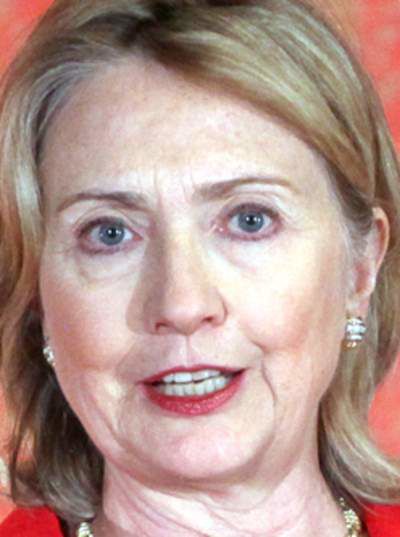Clinton, Arab leaders meet to discuss Lebanon
Published 4:00 am Thursday, January 13, 2011

- Hillary Clinton
DOHA, Qatar — Even as tensions over Iran’s nuclear program seemed to ease a bit, a new Middle East crisis erupted Wednesday during Secretary of State Hillary Clinton’s Persian Gulf tour, with the collapse of Lebanon’s government after a walkout by Hezbollah ministers.
President Barack Obama and Clinton both threw their support behind the embattled leader, Prime Minister Saad Hariri, as well as reaffirming the work of the international tribunal that is investigating the assassination of his father and a former prime minister, Rafik Hariri.
Hours after the collapse in Beirut, Clinton met with Arab foreign ministers who have gathered for a conference in Qatar, the Persian Gulf emirate that helped broker a truce in 2008, the last time Lebanon tumbled into political disarray and even seemed headed for renewed civil war.
Afterward, both she and the prime minister of Qatar, Sheik Hamad bin Jassim al-Thani, pledged to preserve stability in Lebanon. But there was a palpable gap in their enthusiasm for the special tribunal, which precipitated this crisis because of widespread expectations that it would indict Hezbollah members in connection with the 2005 car bombing that killed the elder Hariri and 22 others.
“We view what happened today as a transparent effort by those forces inside Lebanon, as well as interests outside Lebanon, to subvert justice and undermine Lebanon’s stability and progress,” Clinton declared at a news conference. “We believe that the work of the special tribunal must go forward so justice can be served and impunity ended.”
Thani said only, “We have enough problems in the region that this problem we have to take care of it, in a way to solve it, not to complicate it.”
Clinton said the United States would consult with all countries that have a stake in Lebanon to prevent the situation from deteriorating. A senior administration official traveling with her said she had been in touch in recent days with officials from Saudi Arabia, Egypt and France. But it was not clear that the United States was talking to Syria, he said.
Syria and Saudi Arabia had been trying to negotiate a solution to the tensions over the tribunal, and analysts said they would remain far more important to resolving it than would the United States.
The government’s collapse came shortly after a frenzied but inconclusive round of talks in New York, where King Abdullah of Saudi Arabia has been recovering from back surgery. Clinton, Hariri and President Nicolas Sarkozy of France all met him at his hotel suite over the last two weeks.
By last weekend it was clear the Saudis had grown frustrated and decided to cut off the talks, according to Arab and Western diplomats who had roles in the talks and spoke on condition of anonymity, under diplomatic protocol. The American role has largely been confined to advising Hariri to stand firm in his support for the tribunal.
Obama recently named a seasoned diplomat, Robert S. Ford, as ambassador to Syria, and he is expected to leave for Damascus next week. One of Ford’s priorities will be enhancing Washington’s influence with Syria in the Lebanese crisis.
Administration officials have previously criticized Syria for interfering, but on Wednesday Clinton held her fire.
“We don’t think it is at this moment useful to be pointing fingers or blaming or going about the business of recriminations about what did or didn’t happen, or who did or didn’t do what,” she said.
Clinton had come to this region with renewed confidence about the administration’s strategy toward Iran and a well-received message of reassurance to Yemen.






